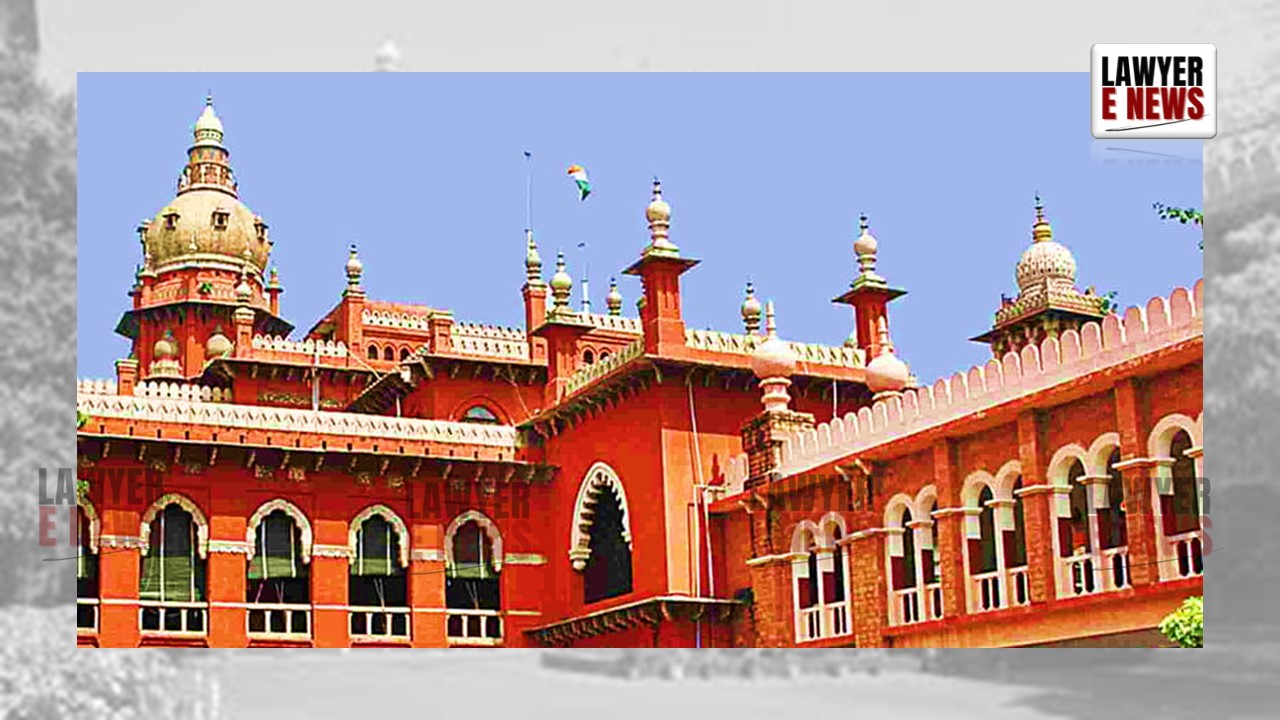-
by sayum
16 February 2026 7:15 AM



The Madras High Court dismissed an appeal challenging the rejection of a patent application, holding that an appeal under Section 117-A of the Patents Act, 1970, is not maintainable against an order passed in a review proceeding under Section 77(1)(f). Even on merits, the Court found that the invention failed to meet the statutory requirements for patentability, particularly under Sections 10(4), 10(5), and 3(k) of the Patents Act.
Justice Senthilkumar Ramamoorthy ruled, "Section 117-A provides an appellate remedy against certain orders of the Controller specified therein. Section 77(1)(f), under which the impugned order was passed, is not one of them. Consequently, the appeal is not maintainable and is liable to be dismissed at the threshold."
The appellant, Caleb Suresh Motupalli, filed a national phase patent application (No. 5606/CHENP/2012) for an invention titled "Necktie Persona-Extender/Environment-Integrator and method for Super-Augmenting a Persona to Manifest a Pan-Environment Super-Cyborg." The Patent Office rejected the application on April 21, 2021, citing lack of enablement, lack of clarity, inventive step, and non-patentability under Sections 3(k) and 3(m) of the Patents Act.
Aggrieved by this decision, the appellant sought a review under Section 77(1)(f), which the Controller considered as a fresh examination, conducted a second hearing, and again refused the patent on October 27, 2021. The present appeal was filed against this review order under Section 117-A of the Patents Act.
The Court first examined the maintainability of the appeal and ruled that an order passed under Section 77(1)(f) is not appealable under Section 117-A. Referring to the statutory scheme, the Court observed:
"Section 117-A provides for appeals to the High Court against decisions made under specific sections of the Patents Act. Section 77(1)(f) is conspicuously absent from this list, thereby excluding review orders from the purview of statutory appeal."
The Court also noted that a review proceeding is governed by Order XLVII, Rule 1 of the Civil Procedure Code (CPC), which requires the applicant to demonstrate either (i) an error apparent on the face of the record, (ii) discovery of new evidence that could not have been produced earlier despite due diligence, or (iii) other sufficient cause. The appellant had not met any of these criteria.
The Court held, "The Controller ought to have rejected the review application outright as it failed to meet the statutory grounds for review. Instead, the Controller erroneously treated it as a fresh examination and issued an order akin to an original rejection under Section 15 of the Patents Act."
Failure to Meet Patentability Requirements
Despite dismissing the appeal as non-maintainable, the Court examined the merits of the appellant’s claims.
Lack of Enablement and Best Mode (Section 10(4))
The Court found that the appellant failed to disclose sufficient details to enable a person skilled in the art (PSITA) to work the invention without undue experimentation. The invention proposed using "black-box modernization techniques" to integrate human intelligence with AI, but the specification lacked technical clarity.
Referring to No-Fume Ltd v. Frank Pitchford & Co Ltd, (1935) 52 RPC 231, the Court stated: "The specification must not require undue experimentation or inventive faculty to work the invention. The appellant merely coalesced known prior art techniques without providing a clear technical roadmap for persona extension and augmentation."
The Court further noted that "the appellant’s claims concerning ‘object-oriented analysis techniques’ and ‘decussation of pyramids’ are not supported by the complete specification, making the invention fail the best mode requirement under Section 10(4)(b)."
Ambiguous and Unclear Claims (Section 10(5))
Examining the requirement of clarity and fair basing, the Court cited The General Tire & Rubber Company v. The Firestone Tire and Rubber Company Limited and Others, (1972) RPC 457, and concluded:
"A claim covering an unworkable or unimplementable embodiment is not fairly based on the specification. The appellant's claims of ‘persona extension’ and ‘labourspace integration’ do not represent a technical characteristic and fail to meet the clarity and fair basing requirements of Section 10(5)."
Patent Ineligibility Under Section 3(k)
The Court extensively analyzed the legislative history and precedents on software-related patents, particularly Microsoft Licensing Technology LLC v. Assistant Controller of Patents, 2024 MHC 2537. The Court reaffirmed the principle that a computer-related invention must demonstrate a "technical effect" beyond a general AI application.
The Court held: "The claimed invention does not demonstrate any technical effect beyond a broad AI concept. The specification lacks any working examples to show how black-box modernization can achieve persona augmentation. Consequently, the invention is barred under Section 3(k) as a mere computer program."
The appellant also challenged the Controller’s reliance on Section 3(b) (invention contrary to public order or morality), arguing that this objection was raised only at the review stage, violating natural justice principles. However, since the appeal failed on other grounds, the Court did not find it necessary to decide this issue.
Dismissing the appeal, the Court concluded: "Since Section 117-A does not provide for an appeal against a review order under Section 77(1)(f), the appeal is non-maintainable. Even if the appeal were maintainable, no interference is warranted as the invention fails to meet the enablement, clarity, and patent-eligibility requirements under Sections 10(4), 10(5), and 3(k) of the Patents Act."
The appeal was dismissed without costs.
Date of Decision: January 29, 2025
